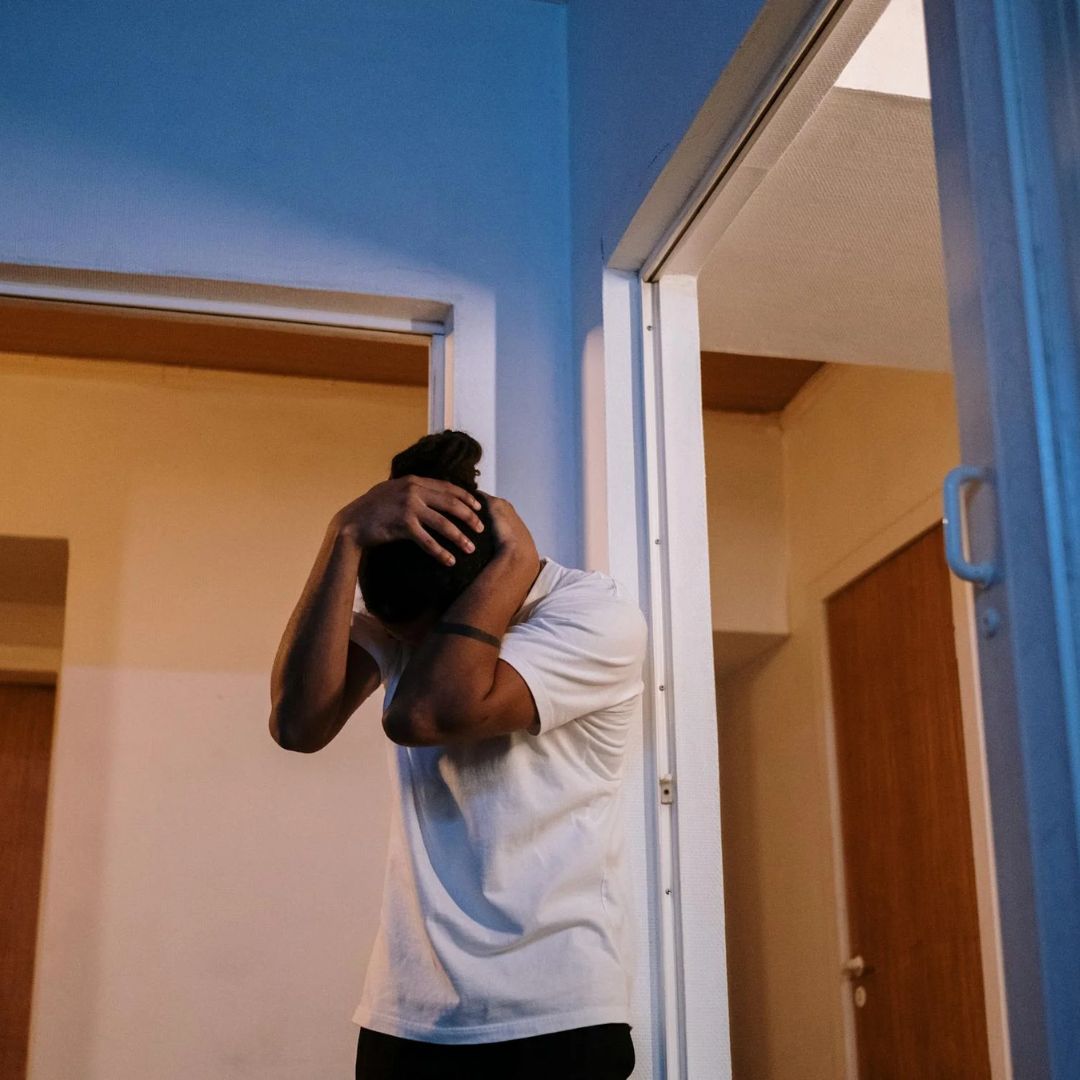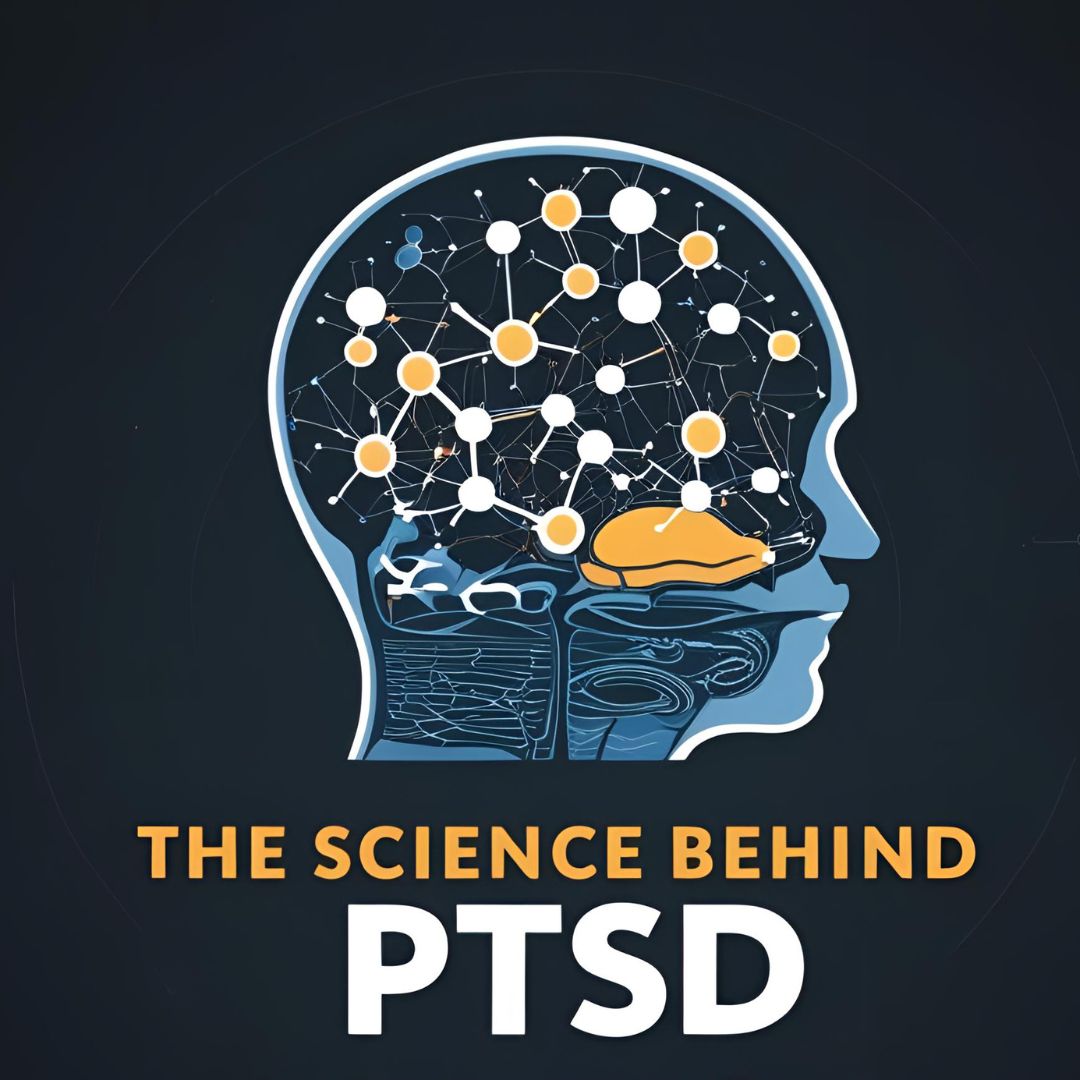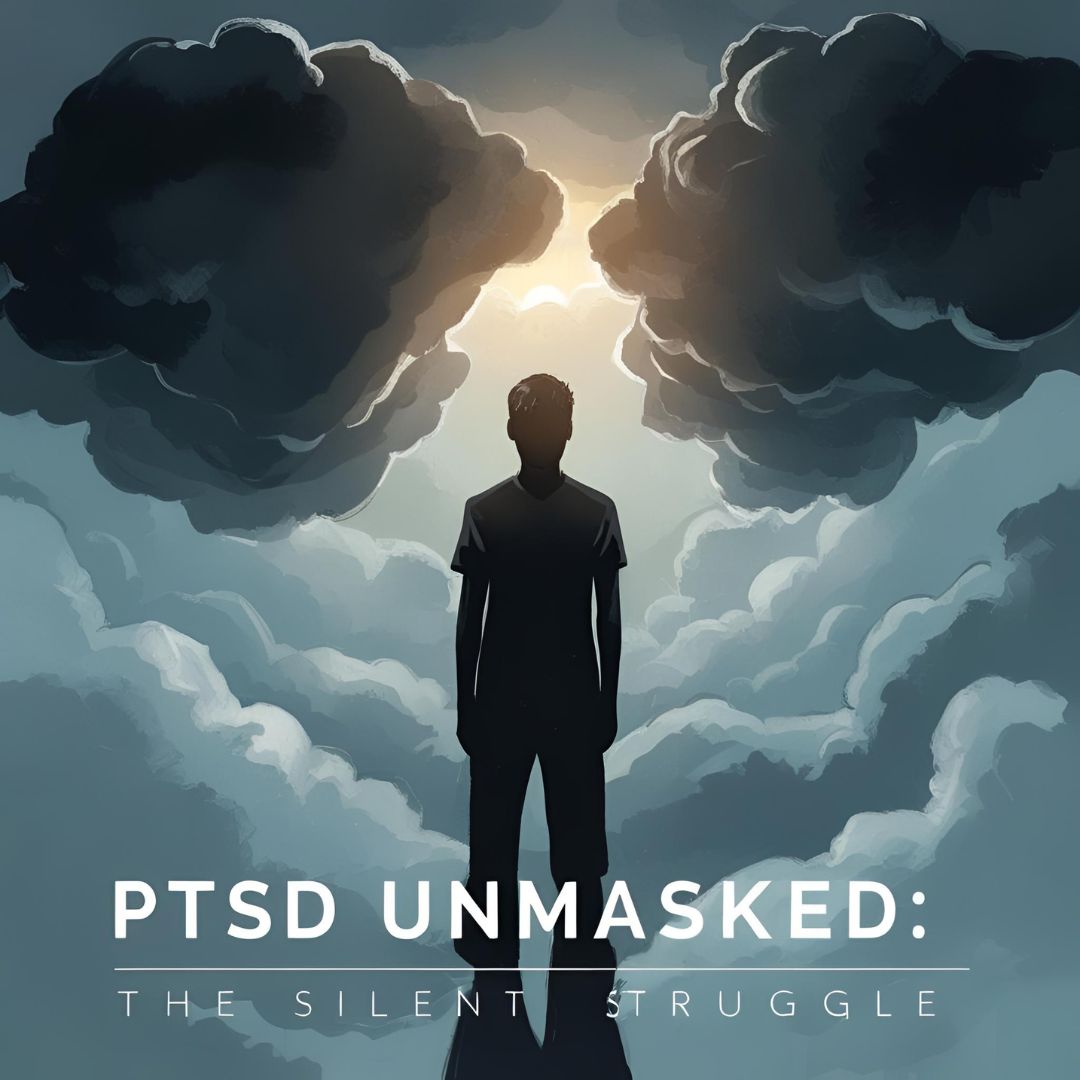LifeHetu
28 Mar 25 10:30 am
Nightmares and Flashbacks - The Hidden Signs of PTSD You Shouldn’t Ignore
Discover the hidden signs of PTSD - nightmares and flashbacks and why they should never be ignored. Learn how with the help of online counselling services and virtual therapy, you can heal in a safe, stigma-free environment.

Introduction
Imagine you’ve just settled in for the night, expecting a restful sleep. Just as you step into some much-needed sleep, you are haunted by vivid, distressing memories of an event from your past. You feel your heart beating faster, sweat dripping down your temples, and you wake up with a jolt to escape from that living nightmare. This is the reality for many individuals who have Post-Traumatic Stress Disorder (PTSD). In India, where mental health is still a topic shrouded in stigma, these symptoms often go unnoticed or misunderstood.
Nightmares and flashbacks are more than just fleeting bad memories. They can be debilitating, affecting one’s ability to live a normal life. This blog will shed light on these hidden signs of PTSD, and discuss how online mental health platforms like LifeHetu can provide expert care and counseling to help individuals heal.
Understanding PTSD: A Brief Overview
PTSD is a mental health disorder that develops after experiencing or witnessing a traumatic event. While it’s often associated with war veterans, PTSD can affect anyone. PTSD may result from experiences like surviving road accidents, natural disasters, domestic violence, or even childhood abuse.
Two of the most common and distressing symptoms of PTSD are nightmares and flashbacks. These hidden signs can disrupt everyday life, making it crucial to address them promptly. With the right trauma-informed care psychologists, you could reclaim your life better.

What Are Nightmares in PTSD?
Nightmares in PTSD are not your regular unpleasant dreams. They’re vivid, distressing, and often replay the traumatic event in detail. It is like you are taken back to the place of trauma again and somebody has switched on the tape where you replay the traumatic events over and over again. These nightmares can leave individuals feeling exhausted and emotionally drained, making it difficult to face the day. According to research conducted on more than 300 participants with lifelong trauma, the frequency of awakenings, nightmare severity, impact on wellbeing, and the perceived realism of the nightmare were linked to more severe PTSD symptoms.
Let us explain to you with a story:
Take the case of Sameer, a 28-year-old living in Mumbai. He had recently survived a particularly gnarly train wreck. After surviving this traumatic train accident, Sameer began experiencing nightmares where he relived the moment the train derailed. Every night, he woke up with the feeling that he was back on the train and was heading towards this accident. His nights became a battleground, and his days were filled with fear and anxiety.
Sameer later found a great trauma care psychologist who helped him understand the connection between his nightmares and his trauma. Through cognitive-behavioral therapy (CBT), he learned techniques to manage these nightmares and improve his sleep quality.
What Are Flashbacks in PTSD?
Flashbacks are episodes where an individual feels as though they are reliving the traumatic event. These can be triggered by sights, sounds, smells, or even emotions that remind them of the trauma. During a flashback, the individual may lose awareness of their current surroundings and feel as though they are back in the traumatic moment. Posttraumatic flashbacks, consisting of the intrusive re-experiencing of traumatic experiences in the present, have been more clearly defined for the first time in DSM-5 and have been identified as a unique symptom of posttraumatic stress disorder in the proposed ICD-11 diagnostic criteria.
Storytime:
Megha, a young woman from Kerala, survived the devastating floods of 2018. While volunteering to help flood victims in 2021, she experienced her first flashback. The sound of rushing water and the smell of dampness triggered a vivid memory of being trapped in her flooded home. She felt panic in her entire body.
With the guidance of the best psychologists in India, Megha learned grounding techniques to manage her flashbacks and reduce their frequency.
The Impact of Nightmares and Flashbacks
Nightmares and flashbacks are not just emotional experiences, they have real physical and psychological consequences. These include:
- Sleep Deprivation: Persistent nightmares can lead to chronic sleep loss, affecting overall health.
- Increased Anxiety: The fear of experiencing another flashback or nightmare can heighten anxiety levels.
- Difficulty in Relationships: Loved ones may struggle to understand what the individual is going through, leading to misunderstandings.
- Avoidance Behavior: Individuals may avoid certain places, people, or situations to prevent triggers, limiting their life experiences.
Recognizing these symptoms is the first step toward healing. Getting the right help at the right time is the trick.
Debunking Myths About PTSD Symptoms in India
In India, misconceptions about mental health often delay diagnosis and treatment. Here are a few myths and the truth behind them:
Myth: “Nightmares are just bad dreams; they’ll pass.”
Truth: PTSD nightmares are recurring and deeply distressing. Professional help is often needed to address them.
Myth: “Flashbacks mean someone is going crazy.”
Truth: Flashbacks are a common PTSD symptom, not a sign of madness. They indicate unresolved trauma that needs attention.
At LifeHetu, we work to raise awareness and provide expert guidance to dispel these myths and support those in need.
When Should You Seek Help?
If you or someone you know is experiencing the following, it may be time to consult a psychologist:
- Frequent, distressing nightmares or flashbacks.
- Difficulty sleeping or concentrating due to these symptoms.
- Avoidance of certain places, people, or activities linked to the trauma.
- Emotional numbness or feeling disconnected from loved ones.
Platforms like LifeHetu offer easy access to experienced mental health professionals who can help diagnose and treat PTSD effectively.
Treatment Options for Nightmares and Flashbacks
The good news is that PTSD, including symptoms like nightmares and flashbacks, is treatable. Here are some common approaches:
- Cognitive-behavioral therapy (CBT)
CBT helps individuals identify and challenge negative thought patterns associated with their trauma.
- Eye Movement Desensitization and Reprocessing (EMDR)
This therapy uses guided eye movements to help individuals process traumatic memories.
- Medication
In some cases, antidepressants or anti-anxiety medications may be prescribed to manage symptoms.
- Mindfulness and Relaxation Techniques
Practices like yoga and meditation, deeply rooted in Indian culture, can help reduce anxiety and improve emotional regulation.
At LifeHetu, our psychologists create personalized treatment plans that combine these methods to suit individual needs.
How LifeHetu Can Help
At LifeHetu, we believe in holistic healing. Here’s how we can support individuals dealing with PTSD:
- Expert Psychologists: Our team includes trauma specialists experienced in handling PTSD symptoms.
- Personalized Care: Each individual’s trauma is unique, and so is our approach to their healing journey.
- Accessible Counseling: With options for online and in-person sessions, getting help is convenient and stress-free.
- Stigma-Free Environment: We understand the cultural challenges surrounding mental health in India and provide a safe, judgment-free space for healing.
Whether you’re seeking help for yourself or a loved one, LifeHetu is here to guide you every step of the way.
Practical Tips to Manage Nightmares and Flashbacks
While professional help is essential, here are some self-care tips that can complement therapy:
- Maintain a Sleep Routine: Go to bed and wake up at the same time every day.
- Practice Grounding Techniques: Focus on the present moment during flashbacks. For instance, identify five things you can see, four you can touch, three you can hear, two you can smell, and one you can taste.
- Journal Your Dreams: Writing about your nightmares can help you process them and identify triggers.
- Stay Active: Regular physical activity, like yoga or a brisk walk, can reduce anxiety and improve overall well-being.
Remember, healing is a journey and every step counts.
Final Thoughts
Nightmares and flashbacks are more than just hidden signs of PTSD, they are calls for help that shouldn’t be ignored. By understanding these symptoms and seeking timely intervention, individuals can reclaim their lives from the grip of trauma.
If you or someone you know is struggling with PTSD, reach out to LifeHetu today. Our compassionate psychologists and evidence-based treatments are here to support you on your path to recovery. Don’t wait, take the first step toward healing now.
Sources:
Alyssia Simos, David Berle (2023), Elevated scores and characteristics linked to PTSD and CPTSD symptoms. Current Research in Behavioral Sciences. Retrieved from https://www.sciencedirect.com/science/article/pii/S2468749923000236
Brewin CR. Re-experiencing traumatic events in PTSD: new avenues in research on intrusive memories and flashbacks. Eur J Psychotraumatol. 2015 May 19;6:27180. doi: 10.3402/ejpt.v6.27180. PMID: 25994019; PMCID: PMC4439411.
Related Reads. Similar Blogs to Check Out.


